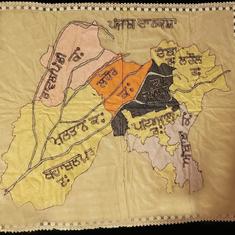This has made the government cautious about the much-hyped project, which has so far been presented as an innovative move by Modi to make decision-making more efficient, in addition to blocking any information leaks on critical issues.
“There are several safety issues involved in it, given the massive increase in number of hacks and cyber crimes,” Union Minister for Steel and Mines Narendra Singh Tomar told Scroll.in. “After all, a lot of confidential information would be at the risk if there is even a small chance of the system getting hacked,” he pointed out.
Paperless office
For almost six months, the Modi government has been working on a plan to introduce a system at which ministers, instead of getting advance cabinet notes on paper, would be provided tablets loaded with memos and annexures by the Cabinet Secretariat just before the meeting and asked to return them after the proceedings were over. The ministers would also be asked to put their digital signature on the decisions taken in the cabinet meeting.
According to officials in the National Informatics Centre, which has been instructed to implement this system, the aim of the e-cabinet is to get rid of all the physical file movements in inter-ministerial consultation on cabinet proposals.
Until recently, the government gave the impression that the new app is totally secure and encrypted. But now senior officials in the NIC claim that “no matter how perfect a system you develop, it is bound to run the risk of getting hacked”.
“Even if we make features such as remote locking or remote reset mandatory in devices, it would be a hell of a job to ensure that they are used for the official work alone and are never used for browsing of random internet sites," said an official. "This is significant because not all ministers and concerned officials are tech savvy and are prone to commit mistakes with regard to internet practices even if they are trained for the purpose. Moreover, a theft or a loss of these devices would put scores of confidential data at risk.”
Added Tomar, “No doubt, going paperless would be a great move, but it cannot be done in a hurry. At the moment, the government is examining potential risks that the new system may create.”
Modi’s idea of going paperless is partly modelled on Andhra Pradesh, where Chief Minister N Chandrababu Naidu held the first meeting of his e-cabinet in September last year. Before moving to an e-cabinet mode, the state had organised a special training camp for its ministers and distributed i-pads to them.
“State cabinets do not deal with any major sensitive issue,” said Tomar. “The union cabinet, on the other hand, has to deal with several issues which are extremely confidential in nature and their confidentiality is directly linked to national interest. We cannot move to paperless system unless we are 100% sure that our system is not susceptible to hacking,” he added.










